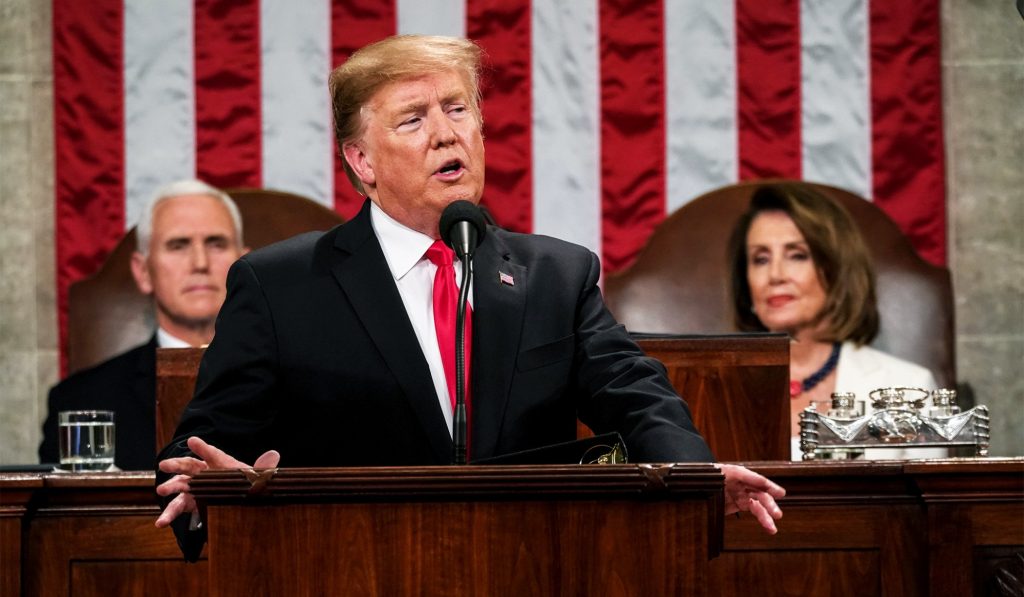By John Heubusch • The National Review
President Trump made headlines last week by walking out of his Hanoi summit meeting with North Korean dictator Kim Jong-un. The move came as a surprise, and many news outlets around the world have decried the summit. But Trump’s move recalled Ronald Reagan’s decision to walk out of an even higher-stakes summit, his 1986 Reykjavik meeting with Mikhail Gorbachev.
The two summits bear some similarities. Both were second rounds of negotiations with a foreign power to mitigate that power’s nuclear threat. Both presidents faced a Communist leader abroad and pressure for a deal back home. And both presidents made the right call in walking out to preserve their position of strength.
During the Reykjavik summit, Gorbachev pressed Reagan to scrap research on the Strategic Defense Initiative (SDI). The initiative was a crucial point for Reagan. It served as the genesis of the effort that to this day provides some limited capability for the United States to protect itself from foreign ballistic-missile attack. The program had been allowed under previous treaties, and so Reagan refused Gorbachev’s demand, ending the summit. Afterward, Reagan explained his thinking to the American people: “I went to Reykjavik determined that everything was negotiable except two things: our freedom and our future.” SDI was an integral part of that future, so Reagan stood firm.
Similarly, Kim Jong-un pressed Trump to lessen sanctions on North Korea as a precondition for any denuclearization. The United Nations–implemented sanctions had been key to pushing North Korea to the negotiating table in the first place, and Trump rightly recognized that they were his key source of leverage. Without a firm, enforceable process in place for denuclearization, history proves there can be no assurance that North Korea will stay true to its word. Weakening or scrapping the sanctions before that process has begun would be an enormous misstep. So Trump walked.
The pre-Trump policy of continuous sanctions with no communication or negotiation is no longer an option, because Trump has given Kim legitimacy by opening negotiations in a way Reagan likely never would have. But times and circumstances have changed. Despite leaving the negotiating table, Trump has maintained a cordial tone toward Chairman Kim in the days since the summit. He is clearly interested in cultivating a relationship for the future. And in the coming months, Trump would do well to continue drawing from the Reagan playbook.
To that end, his most pressing order of business is making goals and possible outcomes clear to Kim. Reagan laid out his goals in lengthy correspondence with Gorbachev. His “zero option” meant the elimination of intermediate-range missiles in Europe. He also refused to concede “our freedom and our future,” which to him included SDI. Trump needs to make his goals just as clear to Kim: Our future safety is not on the table, and denuclearization is a nonnegotiable first step to easing relations between North Korea and the rest of the world. While Trump touts his negotiating skills, he must have clear aims and be extensively prepared before any further summits occur.
Second, Trump must play hardball. Reagan imposed tough sanctions on the U.S.S.R. and commenced a massive military buildup, both for national-defense purposes and to further pressure the Russian economy and government. The mounting financial and political strain contributed both to Gorbachev’s willingness to negotiate and to the Soviet Union’s eventual collapse. Trump should increase sanctions and work hard to bring China and Russia on board with them for the same reasons. If it causes Kim to negotiate toward denuclearization, great. If it causes the regime to collapse, even better.
Finally, Reagan was willing to return to the negotiating table, even if he’d previously walked away without a deal. After Reykjavik, he said “we prefer no agreement than to bring home a bad agreement to the United States.” That’s why he was able to negotiate directly with Gorbachev three times after the summit collapsed and still win significant concessions. Trump, his top negotiators, and our legislators should likewise remain open to future talks. As long as America maintains its position of strength and is willing to walk away from a bad deal, we are unlikely to lose.
Trump’s talks with Pyongyang present a historic opportunity, but they are not without risk. If the president can maintain a Reaganesque resolve and continue to apply maximum pressure on the Kim regime, he may still be able to ensure a more prosperous future for North Korea and improved security for the people of the United States.

